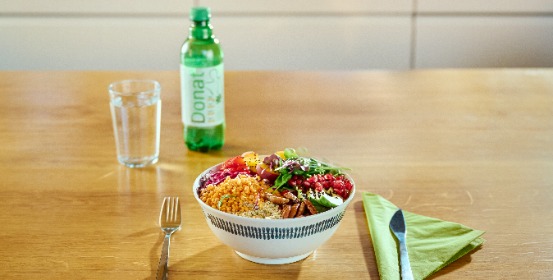Let’s play a little guessing game, shall we? Name a digestion issue that doesn’t only cause discomfort but also prevents you from looking your best. Yup, what we have in mind is abdominal bloating. It’s an occasional nuisance for some and a persistent nightmare for many others, but we can all agree that the world would be a much better place if we could avoid it completely. This is why we want to show you some easy ways of reducing bloating naturally or even eliminating it in the long term.
Let’s Define the Problem First!
In simple terms, abdominal bloating is the state in which your stomach feels full or tight. It looks like swollen, usually due to too much gas building up in your gastrointestinal tract or even some other disturbances associated with it. The symptoms usually involve discomfort or even cramping and pain, accompanied by a feeling as if we were completely “filled up”. It is also commonly associated with excessive water retention but the two terms should not be used interchangeably.
While bloating is sometimes caused by more serious medical conditions, it is most often related to inappropriate dietary choices or intolerance to certain foods. In each case, it can have a severely negative impact on our daily routines, for instance by making our clothes fit tighter, thus causing even more discomfort.
So, What Causes Bloating?
When you feel bloated, this is the result of your gastrointestinal tract becoming filled with air or gas. The air can be swallowed or the gas is created by bacteria in our intestines. Also, when we are constipated, the additional gas may build up behind the stool, adding up to discomfort and pain.
As mentioned before, bloating is most often related to foods that simply produce more gas or ingredients we are allergic to. However, there are some more reasons, for example:
- Overeating and eating too quickly, thus swallowing additional air along with our food.
- Weight gain
- Hormonal changes in women – can often lead to abdominal bloating before or during menstruation
- Reflux
In other cases, bloating can accompany more serious medical conditions, such as:
- Chronic states like irritable bowel syndrome or Crohn’s disease
- Lactose intolerance or celiac disease
- Various types of cancer
- The use of certain medicines
- Inflammation
- Blockage in the bowel or in the bladder
However, there is one more interesting aspect to abdominal bloating. Many people who report such issues actually struggle due to a hypersensitive nervous system that overreacts to a normal amount of gas in the intestine. Patients actually feel as if there is excessive gas causing pressure in their abdomen regions, even though this is not true. Experts call this condition visceral hypersensitivity.
Ok, now we have the basics down, therefore it’s high time to tackle simple solutions that will help you to wave abdominal bloating, gas and other related issues goodbye.
Eat Smaller Portions, Chew Your Food and Don’t Rush It
Do you belong to those who just love to go big when eating? If you feel bloating and discomfort right after a meal worthy of a king, we suggest you break it down into smaller portions next time. This way, you will make it easier for your digestive system to actually get all the food through smoothly, making it harder for gases to build up behind the stool.
You will also benefit from enjoying your meals in peace, carefully chewing every bite. This will prevent you from swallowing additional air along with every bite. The more hastily you tackle your food, the more air you will swallow. And once this air gets to your intestine, it’s game over and bloating after every meal is almost guaranteed.
There is one more benefit of eating slowly, namely enabling you to control the meal size and avoid that second portion you don’t really need. According to science, your stomach needs around 20 minutes to tell your brain that it’s actually full. If you are smashing your lunch like there is no tomorrow, you might as well overeat before your brain can react properly and stop you.
If you want to really take control of how much you eat, a good idea is to stop eating a little before you feel completely full. You can always have a healthy snack later if you’ve had too little.
Especially if you have a tendency to bloat up, you will need to be careful to not compare your portion sizes to the amount of food others around you eat. Bear in mind that people who rarely experience bloating after a meal can eat more without suffering the same consequences as you. Also avoid excessive chatting during a meal.
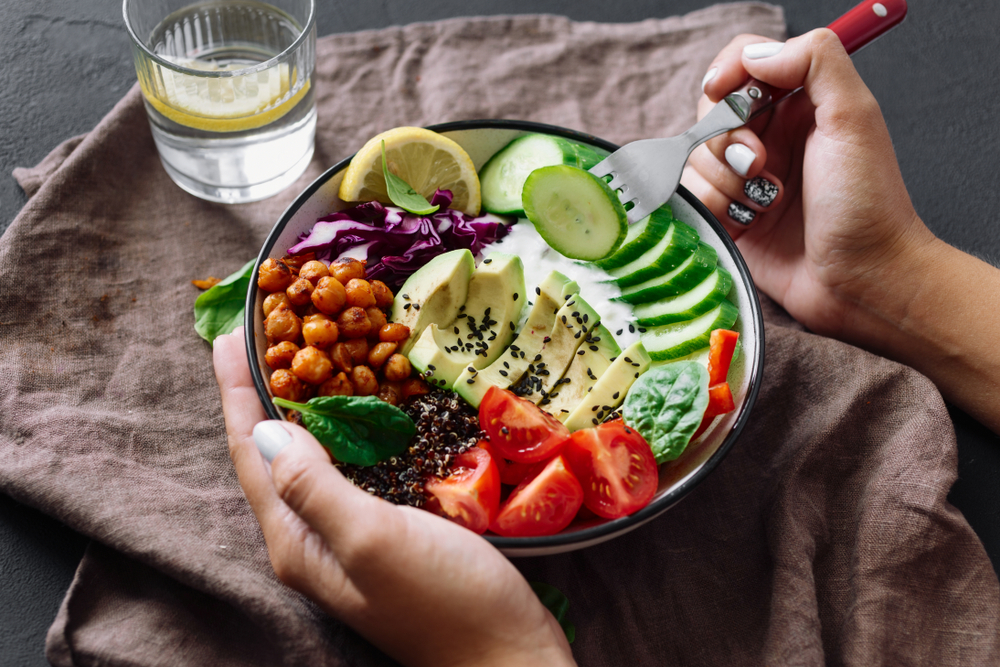
Avoid Other Ways of Swallowing Air and Gases
We’ve already covered how air is produced in the gut – either by the bacteria living there or with our intervention, usually due to swallowing additional air when eating. However, speedy eating also has a partner in crime: fizzy drinks.
Bubbly or carbonated beverages like soda or cola all contain carbon dioxide. When they reach the stomach, this gas is released from the liquid, which results in bubbling and bloating in the gut.
What is more, fizzy drinks often contain excessive amounts of sugar or artificial sweeteners, which can make your body hold on to water. As too much sugar also slows down digestion, sticking to sodas is a shortcut to the land of bloating and constipation. Swapping such unhealthy drinks with unsweetened herbal tea will eliminate the risk of overloading your intestinal tract with gas while also protecting your health.
If you still long for a gentle bubbly sensation when drinking while fearing slow digestion and bloating caused by fizzy beverages, there is a great risk-free alternative called Donat, natural mineral water that is clinically proven to speed up digestion, thus preventing bloating and gas among other issues. Due to its unique combination of magnesium and sulphate ions, Donat stimulates and relaxes your intestines, promoting regular bowel movements that can prevent the excessive production of gas.
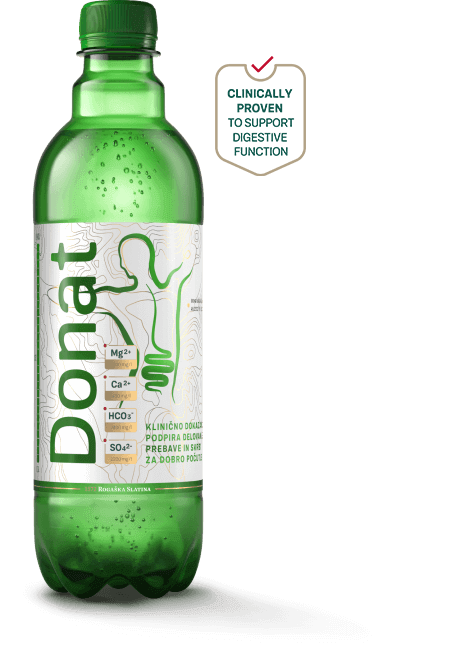
There are also other ways of taking excessive amounts air, such as drinking through a straw or chewing a gum.
Learn Which Foods Your Body Cannot Stand
Nowadays, food allergies or intolerances are a widespread phenomenon, which, if ignored, can have serious consequences. If you don’t cut down on foods you are allergic to, one way in which your body can react also includes abdominal bloating and other digestion issues.
This usually happens when an allergy prevents your gut from emptying properly, causing gasses to get trapped behind the stool. Too much gas can also be produced as a reaction to an ingredient we should probably avoid.
Here is a list of some of the most common intolerances and allergies that can be responsible for slow digestion and bloating:
- Egg allergy
- Lactose intolerance (the main carbohydrate found in milk)
- Gluten intolerance (a protein in many grains, such as wheat or barley)
- Fructose intolerance
Many victims of bloating, gas and belly pain are lactose-intolerant, which means that their body has issues with digesting lactose. If you are one of them, certain medicines can help you ease the symptoms of eating dairy products while the best long-term solution is finding less harmful alternatives such as almond milk. However, dairy intolerance should not be confused with allergy to lactose. In this case, dairy products will lead to more serious effect such as vomiting, blood in your stool etc. This is due to your immune system recognizing such products as dangerous, therefore triggering a reaction.
Another group at risk of bloating and other digestive issues are individuals suffering from autoimmune gluten-intolerance, known as celiac disease. In such cases, bloating is a consequence of inflammation in the digestive tract.
If you suspect issues like bloating and gas might have to do with a food intolerance or allergy, the easiest way to test your hypothesis is to keep a food diary for at least a few weeks. Note down everything you eat and drink while paying special attention to times when you are most susceptible to bloating. If the problem persists or you simply cannot pinpoint the culprit, it’s best to consult a doctor.
Cut Down on Foods Giving You Gas
Eating certain foods simply results in some more bloating and wind, which is why some wisdom is advised if you don’t want your meal plan to make you too gassy. Many culprits in this category are high in fiber, with beans, lentils, broccoli, sprouts and cabbage belonging to the most famous offenders. Fatty foods are also high on the list, even though they can possibly assist with weight loss by making you feel fuller.
Just like in the case of allergies, you must observe your reactions to certain foods to determine what is best avoided, which is why you shouldn’t throw your food diary away once you’ve identified your allergies.
However, despite fibrous diet being responsible for bloating, gas and constipation, don’t think you don’t need it. Fiber is important for your gastrointestinal system as well as cholesterol management. If adding fiber to your diet has negative consequences for your intestinal health, try to help your body to adjust without issues. Introduce fiber-rich foods gradually and give your body time to adjust.
Also remember that foods containing soluble type of fiber (oats, peas, nuts, beans) normally make you gassier than vegetables and other foods with insoluble fiber. Just keep in mind that your body needs fiber, which is why you should not give up on it!
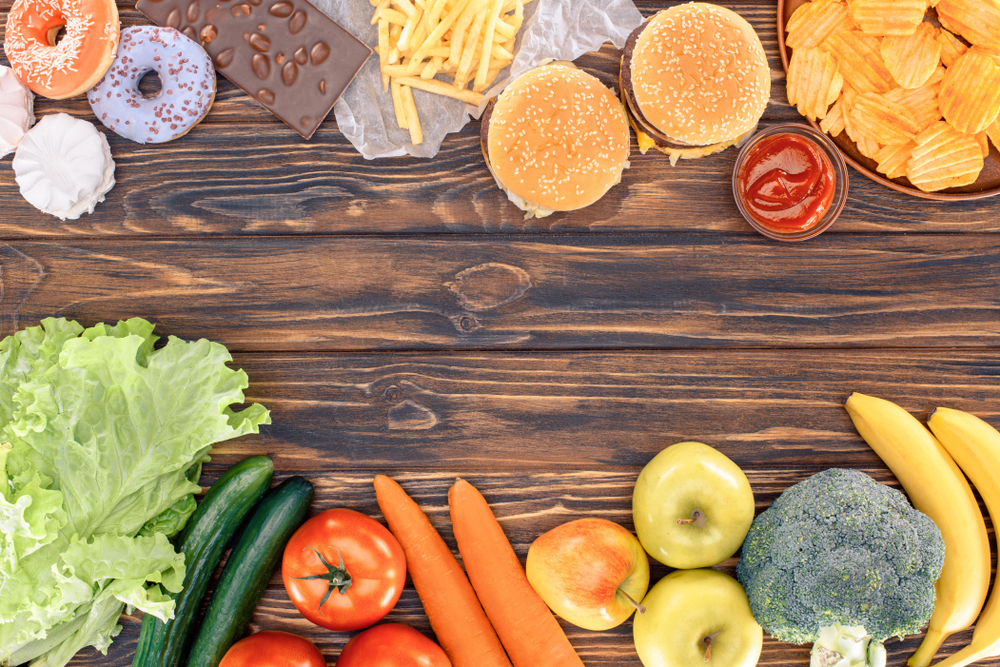
Choose the Foodstuffs that Don’t Make You Bloated
Your diet should contain as little FODMAPs as possible. FODMAP stands for fermentable oligosaccharides, disaccharides, monosaccharides and polysaccharides which are carbohydrates that can be found in many common foodstuffs. Since they are difficult to process, they are associated with symptoms such as bloating, gas and constipation. Put simply: foods that cause bloating are rich in FODMAPs. The research has shown that such foods are especially bad for patients who suffer from irritable bowel syndrome.
While oligosaccharides are found in wheat as well as vegetables like onions, garlic and beans as well as in wheat, an example of disaccharides would be lactose in dairy products. Monosaccharides include fructose (found in many foods as “high fructose corn syrup”) and polyols or sugar alcohols are found in fruits such as apricots as well as in chewing gums or candies.
The problem with those carbohydrates is that they cannot always be completely absorbed by the small intestine. They move into the large intestine and there they are being fermented by bacteria that create gas. Even though the foodstuffs that are rich in FODMAPs do not make all the people bloated, scientists have proven that so called foods with a small percentage of FODMAPs can effectively reduce common digestive problems. This is why that diet is prescribed to people with the irritable bowel syndrome.
If you think that you might also benefit from cutting down on some FODMAP foods, try to experiment with a food diary to determine the most problematic ones instead of just giving up on the whole group.
To help you pinpoint the culprits, here is a short list of the most prominent high-FODMAP foods:
| Apricots | Rye bread | Pears |
| Asparagus | Wheat pasta | Watermelons |
| Nectarines | Onions | Shallots |
| Garlic | Wheat | Prunes |
| Pears | Cabbage | Raising |
| Peaches | Apples | Mushrooms |
| Mangoes | Cauliflower | Pickled veggies |
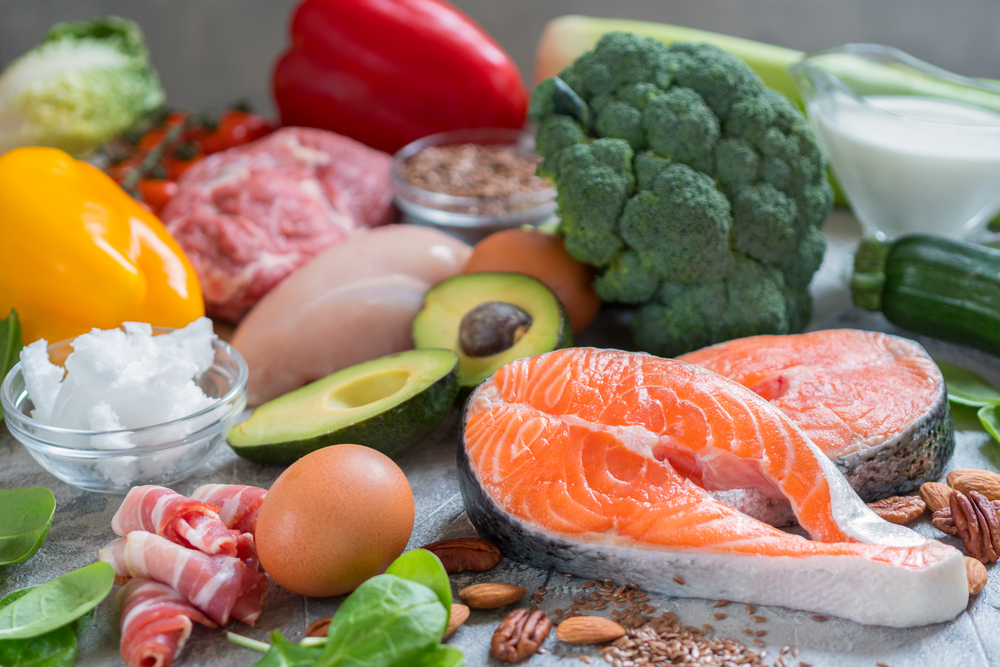
Additional word of warning: watch out for sugar alcohols! You can find these sweeteners in many sweets that are described as sugar-free as well as in chewing gums. While marketed as healthy alternatives to ordinary sugar, they can also be responsible for extensive production of gas, causing bloating and pain. While xylitol, mannitol and sorbitol are best avoided by bloaters, erythritol might be a little easier to digest.
Needless to say, chewing gums also make you swallow air, which, in combination with sugar alcohols, means double trouble. If you are looking for viable natural alternatives for fresh breath, you can try parsley, ginger, organic mints or even licorice.
Keep Your Carb Intake in Check
Naturally, carbohydrates are an excellent choice when you need to quickly fuel up your body. However, if you take your carb-loading routine too far, these nutrients can make your body retain excessive amounts of water, making you bloated. This is most likely to happen if you eat simple carbs (white bread, sweets, pasta) as those normally found their way to your blood right away. Complex carbs (found in fruits or vegetables) do not enter your blood that quickly as they take more time to get digested.
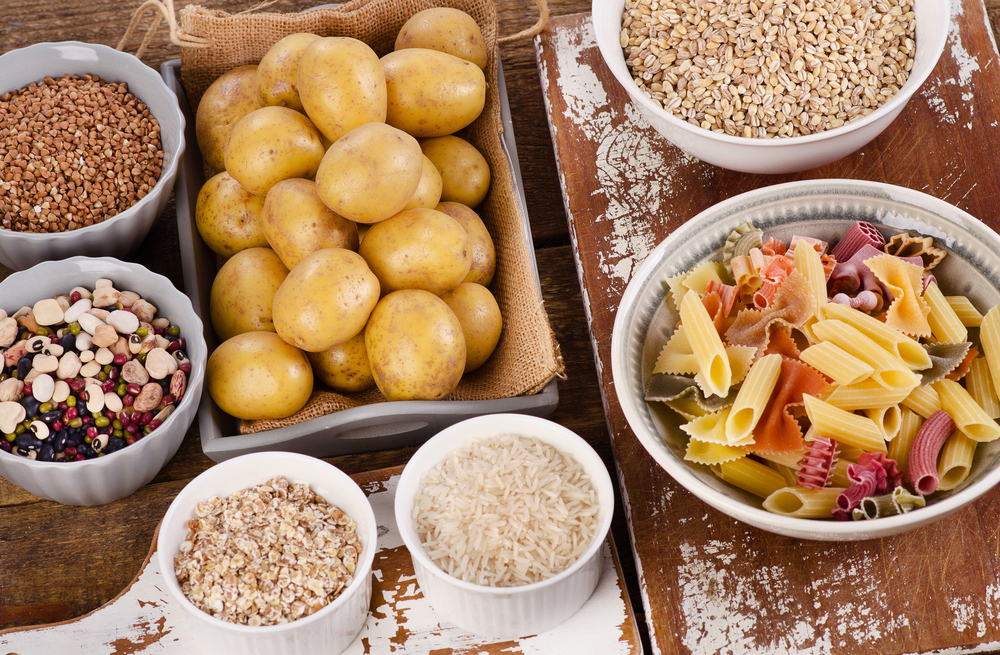
Speed Up Your Digestion
Most of us suffer from irregular bowel movements at least from time to time. Sometimes, this is caused by the foods that are hard to digest or lack of fluids, but also sudden changes in (dietary) routines, too much stress or too little exercise. Naturally, bloating and constipation go hand in hand, which means that when the gut slows down, belly discomfort is quick to tag along.
While constipation usually goes away on its own, experts warn that is can also intensify bloating symptoms. This is why a healthy lifestyle with lots of soluble fiber, proper hydration and regular exercise is vital for bloating prevention. But be careful with fiber – suddenly increasing the amount of fibrous foods in your diet can actually make your bloating problem even worse. Slow and steady wins the race.
If you regularly suffer from constipation, you might be interested in our article on how to avoid such issues. And if you are ready for the next step, add a few simple tricks for naturally smoothing things in your bowels. Or simply drink Donat, one of the best natural remedies for slow digestion.
Learn to Love Probiotics
While scientific opinions are still divided when it comes to the role of probiotics in reducing bloating and other digestion issues, most nutrition experts will agree that probiotic cultures are a welcome addition to a healthy diet. Even though their role in improving digestion and reducing bloating or gas has not yet been proven, foods like pickled vegetables, sauerkraut, yogurt, kefir & co. are a great way of maintaining a healthy intestinal ecosystem. If you want to feel great while admiring your flat belly, this is certainly an important step.
You can also try probiotic supplements as these also have many additional benefits for your health. Just have patients as their effects usually show after a few weeks of use.
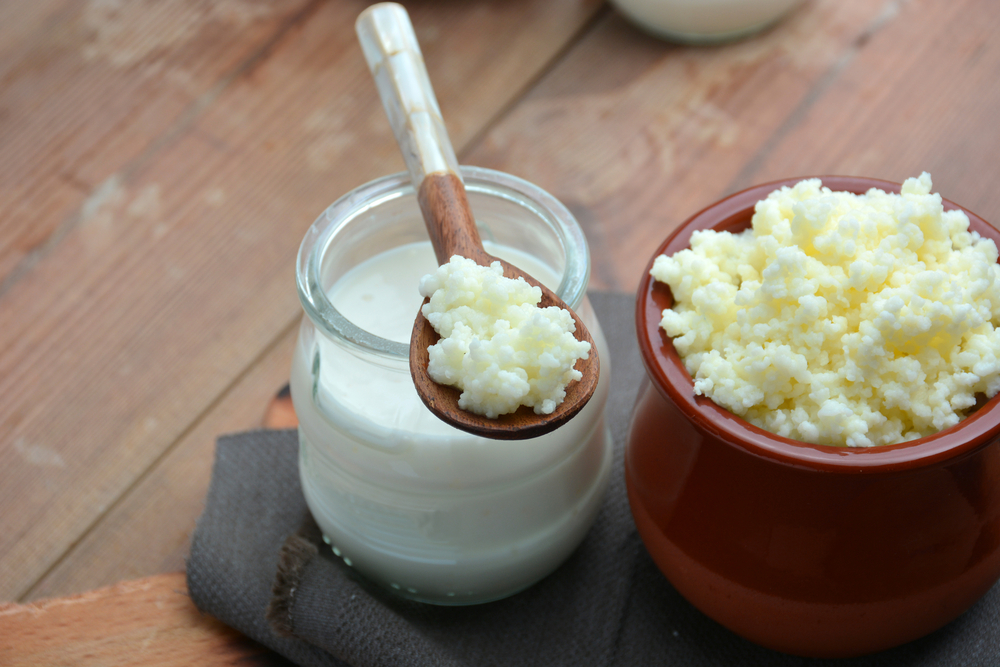
Use Salt Sparingly When Cooking and Your Body Will Thank You
A saltshaker can be a devious cooking partner as too much sodium can easily make your body retain excess water. This does not only lead to bloated stomach but can also result in other areas of your body becoming swollen, even your hands or your feet. What is more, a salt-rich diet can mess up your blood pressure and lead to a whole host of additional issues that will make a swollen tummy the least of your problems.
But cooking with care is just one aspect of avoiding excessive salt intake. You should also be careful with prepackaged and processed foods. You might not feel all the salt in them but don’t you ever think that you’re safe. Always check the food label before treating yourself to a delicious snack and choose wisely.
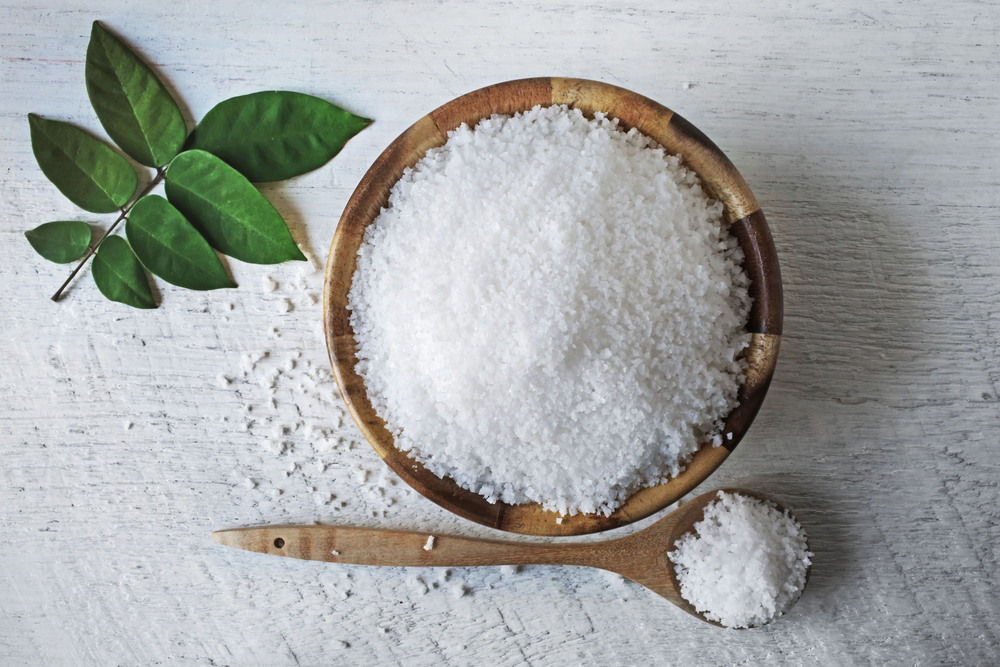
No, We Never Forget Regular Exercise 😉
If you are a regular visitor on these pages, then you already know that we always promote an active lifestyle with regular exercise as a vital part of gut-supporting routines. Constantly moving around, even if just coupling shorter walks around the block with some stretching in the morning, will expedite the processing of food in your bowels and ensure that the waste won’t stay in your system longer than necessary.
Go for some cardio or try out some new yoga poses – as long as you are moving, you are also stimulating your bowel muscles, helping them pass the stool more efficiently and thus prevent gas building up in your gastrointestinal tract.
And there is one more health benefit that we simply can’t overlook. If you are diligent enough to do exercises that make you sweat, you will also help your body release extra sodium, thus additionally lowering the risk of abdominal pain and bloating. However, if you swear by excruciating workouts, don’t forget to take care of hydration. Inadequate fluid intake will make your stool hard and difficult to pass through, which is clearly not what you want to achieve.

What About Abdominal Bloating Before or During a Period?
Women will know what we’re talking about. During a premenstrual syndrome, their bodies are prone to retaining more water, which makes them bloated and causes discomfort in the belly. While experts haven’t been able to pinpoint the exact reason yet, they speculate that hormonal changes are the most likely culprit behind the issues. If you belong to those who suffer from abdominal bloating before or during a period, it’s vital to stick to healthy habits. Stay away from sweets, sugary drinks and processed meals, include fiber in your diet and make sure to drink enough. Going for a walk isn’t a bad idea either.

Sometimes, Going to the Doctor Works Best …
In most cases, extra gasses will leave your bowels on their own or with a little help from your side. However, sometimes a few simple tricks simply won’t suffice. In such cases, abdominal bloating and gas might be symptoms of a more serious medical condition that requires some medical help.

So, when it the situation serious enough? Take a look at the list below and check if you any of the symptoms matches your issues:
- You feel weak;
- Loss of appetite;
- Considerable weight loss in a short period of time;
- Persistent or severe stomach pain;
- Bright blood in your stool;
- Dark stool
- Diarrhea;
- Vomiting;
- Fever;
These signs might point to more serious or even chronic digestive issues. Your doctor will probably take a sample of your stool or check an X-ray of your small intestine. You might also need to undergo testing for lactose intolerance or even celiac disease. Even though there are many online tests claiming to help you determine whether or not you suffer from certain disorder, the best way to be sure is to consult your GP or even a specialist.
Maybe all you need are a few modifications of your diet plan and everything will be OK again.
Oh, and before you go … We want to make sure you really have all the information you need, which is why we gathered the most important bits in the form of frequently asked questions. Make sure you read them.
Frequently Asked Questions
What are the most common causes of bloating?
Bloating is mostly a consequence of improper diet and it often happens after consuming food to which the body reacts with an allergy. However, it can also be caused by more serious health conditions. Bloating can also appear after eating fast, in overweight people, due to hormonal changes before, i.e. during period or due to reflux.
Which foods cause bloating?
Bloating is often caused by foods rich in FODMAPs, i.e. certain types of carbohydrates that are more difficult to process and therefore cause bloating and gas. They can be found in wheat, certain types of vegetables (beans, garlic, cabbage, cauliflower…) and fruit (apricots, plums, mango…), some dairy products, etc.
How to prevent bloating?
In order to avoid bloating, eat slowly and chew your food well but first of all listen to your body and identify the foodstuffs which are not good for your body, i.e. the ones your body is allergic to. The easiest way to do so is by keeping a journal and testing your body – by removing some foodstuffs from your diet. Pay special attention to foods that are known for causing bloating and reduce the intake of carbohydrates. Add more probiotics to your diet and exercise more regularly.
When does bloating become a reason to see a doctor?
Bloating usually disappears by itself or with the help of natural remedies. However, if you notice that you have lost your appetite, if you often feel sick, notice blood in your stool, lose weight or if you have high temperature, we advise you to consult your general practitioner.
Does Donat prevent bloating?
Due to being rich in magnesium and sulfate Donat increases the volume of bowels and relaxes the digestive tract muscles and thereby accelerates the digestion and helps eliminate the bloating. Its efficiency in accelerating digestion was confirmed by an independent German study from 2016.
Do you want to use Donat’s healing power to the maximum?
Choose chapter:




